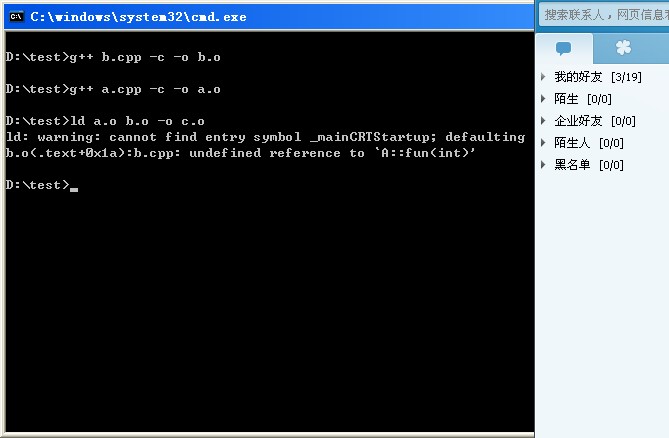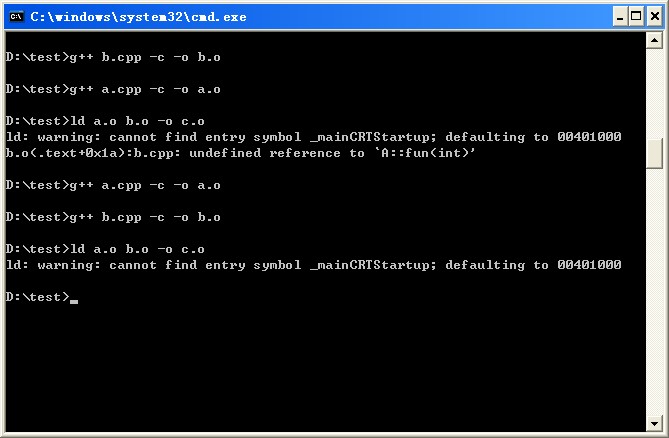在上篇文章《inline的另一用处》中,提到函数实现在类定义中与类定义外的区别。
现在先看个实验:
a.cpp:
- #ifndef TEST_H
- #define TEST_H
- class A{
- public:
- int fun(int x){
- return (x*x+1000);
- }
- };
- #endif
- void tt()
- {
- }
b.cpp:
- class A{
- public:
- int fun(int x);
- };
- void tt();
- int yy()
- {
- tt();
- A a;
- return a.fun(3);
- }
将它们分别编译后再链接:

显示链接错误,因为b.cpp(b.o)中找不到A::fun(int)的引用。
将以上的a.cpp改为如下所示:
- #ifndef TEST_H
- #define TEST_H
- class A{
- public:
- int fun(int x);
- };
- #endif
- int A::fun(int x){
- return (x*x+1000);
- }
- void tt()
- {
- }

分别编译a.cpp和b.cpp为a.o和b.o后链接,显示链接成功。
这样,第一次链接错误的原因就很明显了。
结论:
在类定义中的类成员函数实现有文件内部作用域,而在类定义外部的类实现有的是全局作用域。
http://blog.csdn.net/tobacco5648/article/details/7651408